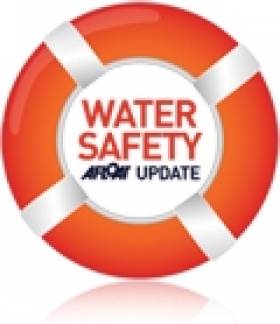Displaying items by tag: Paralysis
#WaterSafety - Recreational divers must follow safety guidelines to the letter, a coroner has urged during the inquest into the death of two diving enthusiasts off West Cork last summer.
As previously reported on Afloat.ie, the two men in their 60s, who were understood to be experienced divers, died while exploring the wreck of a German U-boat off Castlehaven on 2 July last.
Cork City coroner Dr Myra Cullinane this week ruled misadventure in the deaths of 65-year-old Stephen Clarke from Surrey and 61-year-old Jonathan Scott from Western Australia, as the Irish Examiner reports.
The inquest heard that both men had overstayed their 'bottom time' at the wreck 42 metres below the surface and succumbed to the bends after making a rapid ascent.
It was also found that the duo's air regulators were not appropriate for operation at such depths, which would have made breathing difficult.
The Irish Examiner has much more on the story HERE.
Elsewhere, an Irish student who was paralysed while diving into the water at a Portuguese beach in 2012 has spoken of the moment that changed his life forever.
Jack Kavanagh was an experienced lifeguard and surfing instructor before the dive into a hidden sandbank that broke his neck with a "little click".
But as the 22-year-old tells the Irish Mirror: "I was very calm. I knew immediately what had happened. I was so used to being in the water so I didn't panic at all... As a lifeguard I had done training, I knew all the signs and symptoms."
Since then he has defied the preconceived notions of his disability, returning to Trinity to complete his pharmacy studies – and next week is headed to the States with friends for a J1 working holiday.
And that's not to mention the 'Sail for Jack' organised by the Royal St George last August to raise funds for his specialised supports and treatment.





























































